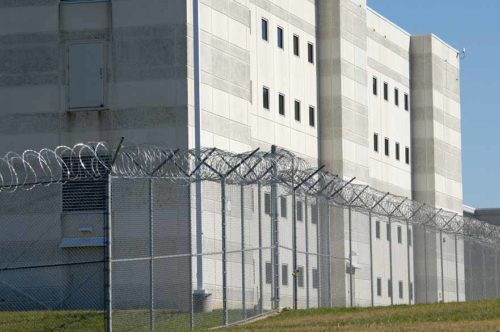This British Psychological Society (BPS) accredited Forensic Psychology Masters degree is designed to prepare psychology graduates with the academic knowledge and skills necessary to conduct practical work and research within a forensic context. The BPS accreditation means that by obtaining the MSc in Forensic Psychology you’ll be completing the first stage in your professional training required by the BPS to become a qualified practitioner within the field of forensic psychology (Chartered Forensic Psychologist).
The focus on blending research and practical expertise is reflected in the course team, which consists of forensic practitioners or academics who each have considerable experience working with offenders and victims in a range of forensic contexts in the UK. Attached to the MSc in Forensic Psychology is the Sexual Offences, Crime and Misconduct Research Unit (SOCAMRU), which incorporates a group of active researchers currently engaged in collaborative work with:
– HM Prison Service
– the Police Service
– the National Health Service (NHS)
– High Secure Hospitals.
What you’ll study
*We are currently reviewing the content of our courses to ensure that they remain relevant and current to our students’ future ambitions and society. Please continue to check this course webpage for the latest developments.
This course is designed to give you the academic knowledge and practical and research skills recommended by the BPS. You’ll also develop the core practical skills that will equip you to become a practitioner in the field of forensic psychology.
During the course you may have the opportunity to gain real life experience within forensic settings. The team appreciate the difficulty of gaining experience in this field and the importance of doing so for your future career, and so offer a selection of different projects and opportunities which will open the door to the practical field of forensic psychology.
Example projects from previous students include: assisting with the evaluation of a treatment programme through interviewing staff; assessing the reliability of a scale with prisoners, including disseminating questionnaires; the impact on staff of working with suicidal prisoners; staff boundary management in Rampton secure hospital; detecting deception with eye-tracking; evaluating support for prisoners on release from prison including interviewing staff who work with mentally ill offenders and their families; testing suicide theories within an offending population.
A range of forensic work experience opportunities (usually one day per week during term time) and / or applied forensic projects are available each year. These will allow you to gain experience in the forensic field of work. For example, you may be working within a forensic environment or a secure hospital.
Careers and employability
Students generally choose the MSc Forensic Psychology because they wish to qualify as a BPS Chartered and Health and Care Professions Council Registered forensic psychologist and to pursue a career in forensic psychology. Others may choose to use their qualification as a stepping stone toward doctoral training in clinical psychology, to work in criminal justice and mental health settings, e.g. police, prison, probation services, the NHS, and so on.
It’s also possible to pursue an academic and / or research career in psychology following graduation (for example by working as a research assistant or associate, or by studying for a PhD). Indeed, your qualification in forensic psychology is likely to be popular with a whole range of potential employers because, in addition to possessing in-depth theoretical knowledge of forensic psychology, you will also have demonstrated an ability to write essays and reports and to present in front of other people (amongst other transferable skills).




















